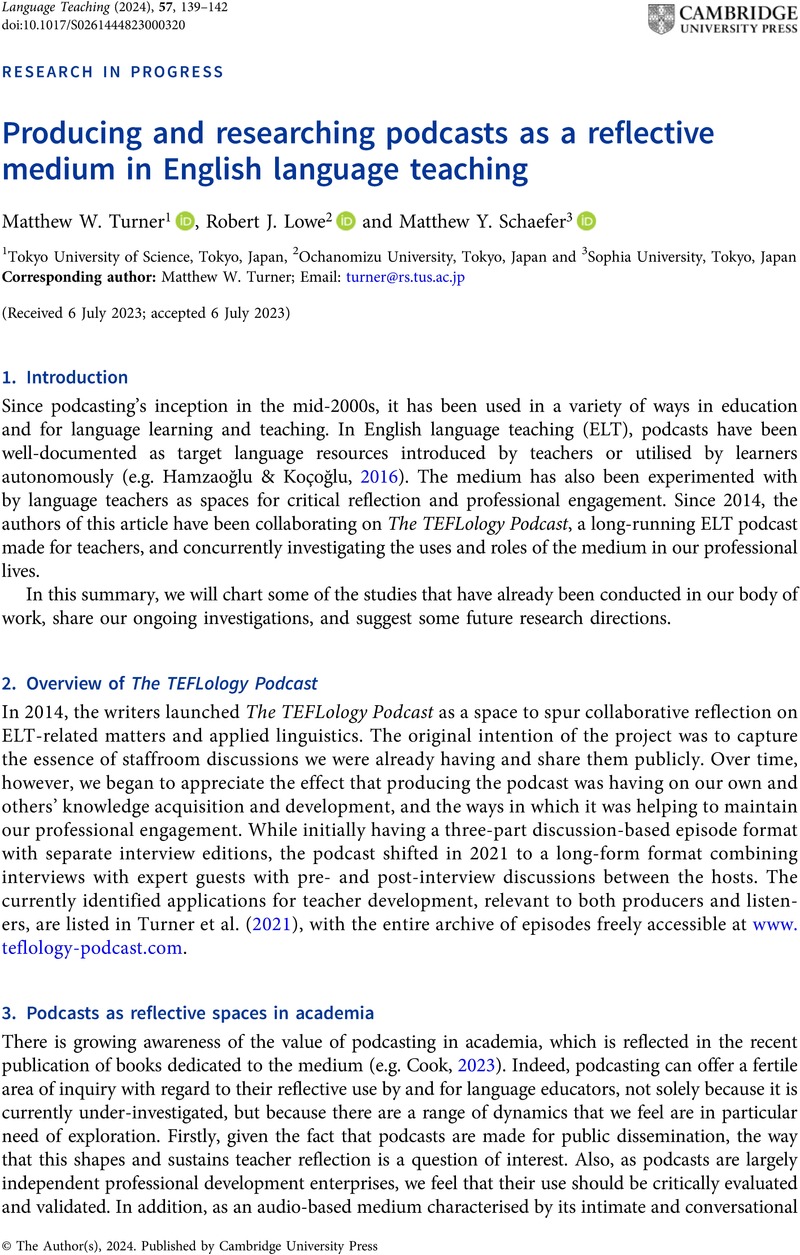Crossref Citations
This article has been cited by the following publications. This list is generated based on data provided by Crossref.
Abubakar, Usman
Kofo Soetan, Aderonke
and
Ibrahim, Hussaini
2024.
Integrating Podcasting to Enhance Public Speaking and Pedagogical Excellence of Preservice Language Communication Teachers in Ilorin Public Universities.
Language, Technology, and Social Media,
Castañeda-Trujillo, Jairo Enrique
and
Losada-Rivas, Jhon Jairo
2025.
In-service English language teacher-researchers’ ideologies, realities, and practices concerning qualitative research.
System,
Vol. 129,
Issue. ,
p.
103566.




